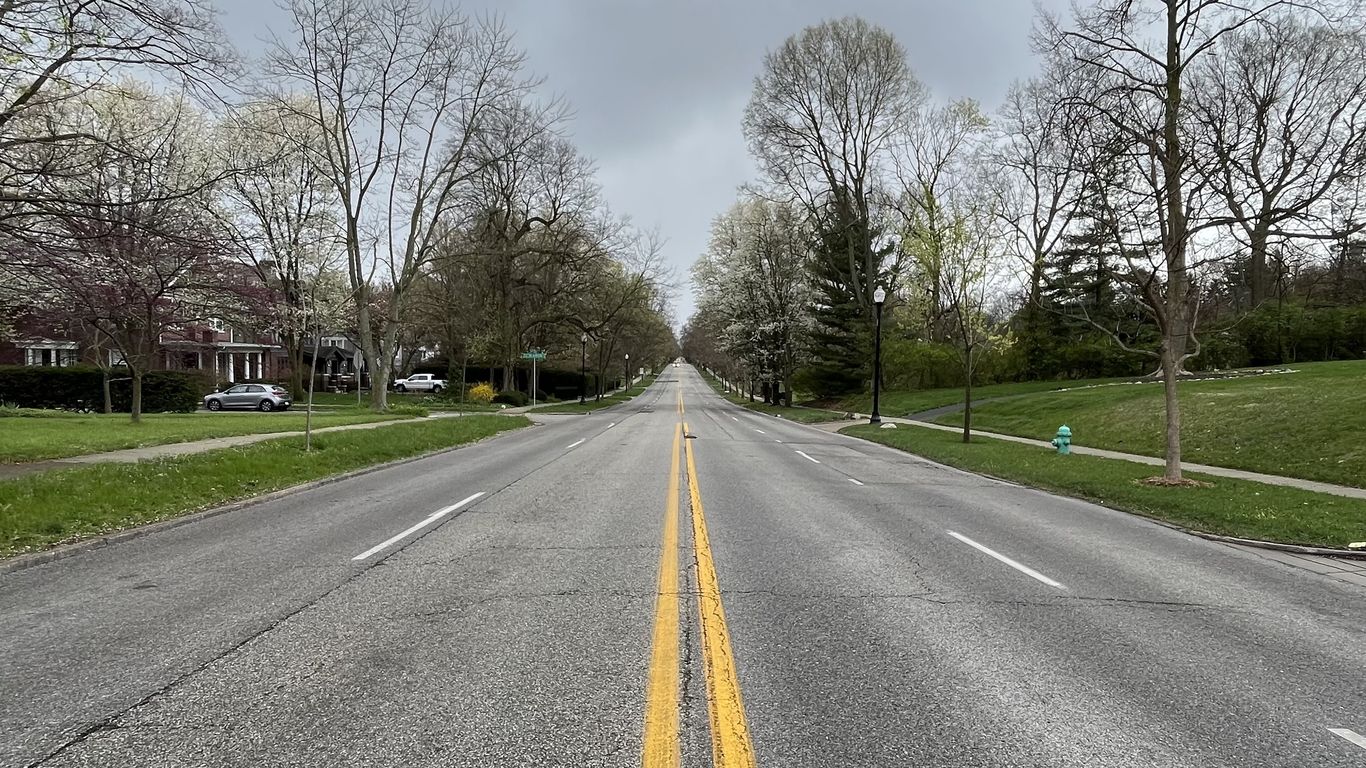Residents want to put Meridian Street on a road diet. The city is considering it.
The North Meridian Historic District would get a landscaped median and fewer traffic lanes. The future of Meridian Street in Indianapolis will be debated during the next year's legislative session, with residents arguing that it is too narrow for four lanes and causing dangerous conditions. The city is considering reducing the busy street from 38th Street north to the Central Canal area, through the North Meridian Historic District, from two lanes of traffic each direction to one, with a landscaped center median. Legislators have also suggested that they take back control of former state highways, including Meridian and Washington streets, which previously served as U.S. 31 and 40 respectively. However, further reduction of traffic is unlikely to be popular at the Statehouse as lawmakers have already tried to intervene in city initiatives aimed at slowing traffic and balked at plans to dedicate traffic lanes along Washington Street to IndyGo's Blue Line bus rapid transit project.

Published : a month ago by Arika Herron in Health
Residents say this stretch of Meridian Street is too narrow for four lanes and speeding drivers make for dangerous conditions. Photo: Arika Herron/Axios
A state highway or a two-lane boulevard with a center median are two of the competing visions for Meridian Street. Why it matters: The future of Indy's famous — and heavily trafficked — avenue will be on the docket during next year's legislative session, setting up another battle between the desires of city leaders and residents and those of state lawmakers.
Driving the news: Legislators have floated the idea of taking back control of former state highways previously relinquished to Indianapolis, including Meridian and Washington streets.
• Meridian Street used to serve as U.S. 31 before it was routed onto I-465.
• Washington Street was formerly U.S. 40 before it was also routed to I-465.
The intrigue: Local residents have a different idea.
• City officials told Axios they're in very early conversations about reducing Meridian Street from 38th Street north to the Central Canal area — through the North Meridian Historic District — from two lanes of traffic each direction to one, with a landscaped center median.
• "We're having a conversation with the community about what this road could look like in the future, what would the community like to see it look like in the future," said Kyle Bloyd, spokesperson for the Department of Public Works. "This is how these things start — with community conversation."
• Will Hoffman, with the Meridian Street Foundation, said the group brought the idea to DPW three years ago and has been working to gather data and support for the project.
The big picture: In recent years, the city has been prioritizing "road diets" and other initiatives to slow and calm traffic.
• Examples include the ongoing conversion of New York and Michigan streets from one-way to two-way traffic and the installation of "no turn on red" signs at most downtown intersections.
• Some traffic lanes were eliminated on a portion of Meridian south of 38th Street as part of the Red Line project.
Between the lines: Further reducing traffic along Meridian Street is unlikely to be popular at the Statehouse.
• Lawmakers have already tried to intervene in city initiatives aimed at slowing traffic and balked at plans to dedicate traffic lanes along Washington Street to IndyGo's Blue Line bus rapid transit project.
Plus: Leaders say Indianapolis' subpar maintenance of the former highways is another reason to reconsider who owns Meridian and Washington.
The other side: City officials say deferred maintenance along Washington Street stems from the Blue Line, which includes plans for $150 million in road improvements.
• Brandon Herget, DPW director, said last week that the city leaders have concerns about a state takeover of thoroughfares that, these days, function more as neighborhood streets than highways.
What they're saying: "It is a historically significant portion of our city," said Joseph Lese, member of the Meridian-Kessler Neighborhood Association. "It's odd to me that it was a state road to begin with. Maybe back in the day when we didn't have a highway system that was fine but we've grown up as a city."
• "Having a state highway run through the city, especially on dense neighborhood streets, really is not appropriate anymore."
What's next: Statehouse leaders have said to expect a comprehensive discussion on the road funding formula and ownership of former state highways during next year's budget-writing session.
